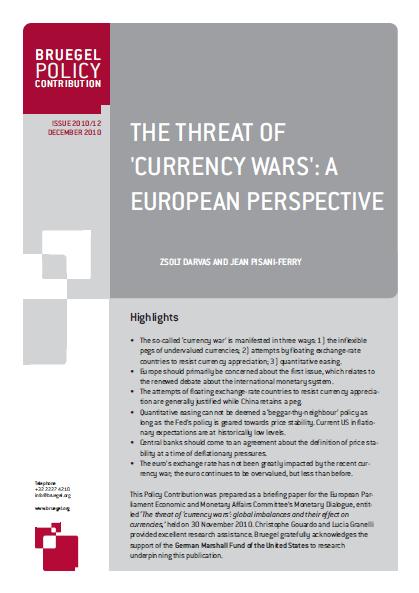Policy Contribution
The threat of ‘currency wars’: a European perspective
This Policy Contribution was prepared as a briefing paper for the European Parliament Economic and Monetary Affairs Committee’s Monetary Dialogue, entitled The threat of currency wars: global imbalances and their effect on currencies, held on 30 November 2010. Bruegel Fellows Jean Pisani-Ferry and Zsolt Darvas argue the so-called currency war is manifested in three ways: […]
This Policy Contribution was prepared as a briefing paper for the European Parliament Economic and Monetary Affairs Committee’s Monetary Dialogue, entitled The threat of currency wars: global imbalances and their effect on currencies, held on 30 November 2010. Bruegel Fellows Jean Pisani-Ferry and Zsolt Darvas argue the so-called currency war is manifested in three ways: 1) the inflexible pegs of undervalued currencies; 2) attempts by floating exchange-rate countries to resist currency appreciation; 3) quantitative easing.
Europe should primarily be concerned about the first issue, which relates to the renewed debate about the international monetary system. The attempts of floating exchange-rate countries to resist currency appreciation are generally justified while China retains a peg. Quantitative easing cannot be deemed a "beggar-thy-neighbour" policy as long as the Fed’s policy is geared towards price stability. Central banks should come to an agreement about the definition of price stability at a time of deflationary pressures, as current US inflationary expectations are at historically low levels. Finally, the exchange rate of the Euro has not been greatly impacted by the recent currency war; the euro continues to be overvalued, but less than before.







